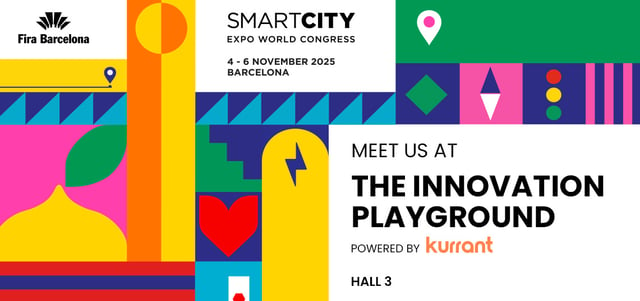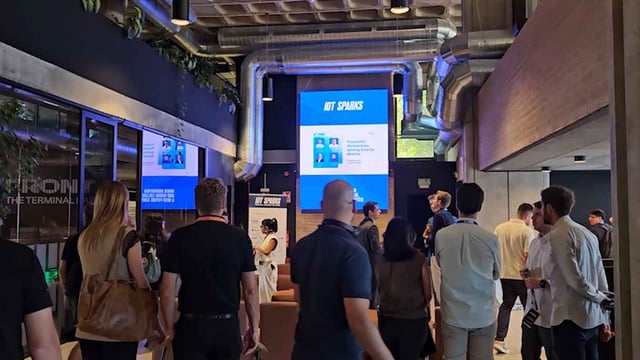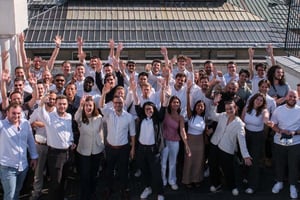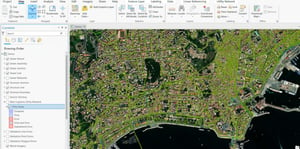📖 Read Video Transcript
Hello from Valencia, where the sun is shining and the IoT conversations are aplenty with IoT Sparks taking place. The one day event has gathered some 300 people here at the Terminal Hub to discuss the industry, the challenges and the trends. With companies like Milesight, TagoIO, known to the smart cities and utilities world, we took this opportunity to discuss with attendants, is there really anything new in the industry? Where is the industry at? And since the event is taking place in Valencia, what is the city doing to boost innovation and attract startups? Probably the most interesting trend I see at the moment is borrowing a bit of that AI pixie dust and actually pushing AI out to the edge as AIoT and putting AI onboard those IoT devices. And this can really transform a lot of applications. So many folks will be familiar with video analytics applications where it's possible to analyze the contents of an image and decide, for instance, whether there's a person or not, and relay that information to a remote location rather than streaming out the full video stream. Well, the same kind of theory applies to many different applications. So, for instance, smart metering. So it's not anymore just selling hardware. It's not any more just selling software. You also have to provide a specific quality of service around this. So currently in the smart metering world a lot of mergers and acquisitions are ongoing. So there we are very latest ones. Of course we all have to prepare ourselves as meter, hardware, suppliers. Also for the future, which means providing software, providing connectivity, providing AI, for example. There used to be lots of interest in IoT. That interest has diminished over time. And sort of it's been replaced by AI probably replaced and some I think the hype for AI is much higher than it is for IoT. Now there is the talk of combination of how do you use AI with IoT? So there’s probably much less and less interest for them to get into smart cities today than there was five years ago, ten years ago. We so much more appetite back then for them to get involved in those sorts of projects. The interest for them today is simply selling connections, selling sims. If you sell Sims to an automotive, you sell them to BMW., then you can have millions of connections that are generating a reasonably high volume of data. That's going to create a lot of money for you. Without really stepping out of your core business. You're still just selling connections. So we have several initiatives, like the Valencia Urban Sandbox, where we allow whoever wants to come to the city to test in a real environment. So we put the city to the different startups academia to test in a real life laboratory, the solutions to get real results. We have 140 urban resources from buildings, buses, sports facilities, even traffic lights. What we make is available to the companies, academia who want to test the solution. We look for solutions that haven't been tested completely in the market. So we look for a phase where the idea has been developed, but it's not tested completely or fully. Lanzadera has seen that, every year startups are applying, are trying to get into Lanzadera with more mature projects. In the beginning, it was more of an incubator, and people came up with an idea and they thought that their idea was enough to launch the project. But right now, more than 80% of the companies that apply to Lanzadera and that we accept are already with revenue. They have clients and we help them to grow from their first clients, to a more mature company. We always look for companies with a strong number one who's able and willing to take difficult decisions and we try to focus on companies who are developing something, with some sort of innovation.








